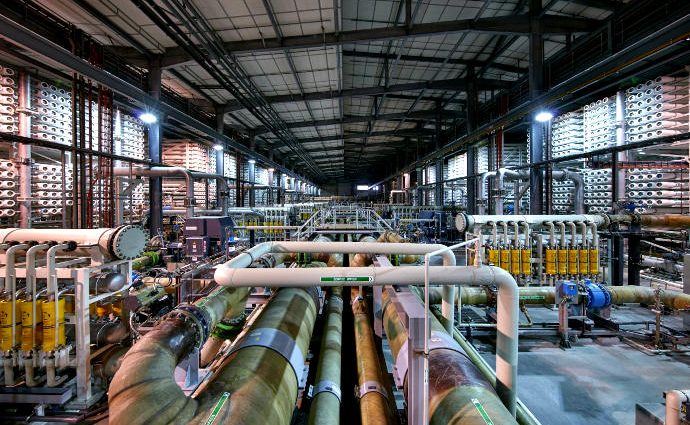Alarm bells are ringing for Victorians with the Andrews Labor Government flagging it is considering whether to build a second expensive desalination plant or expand the existing plant at Wonthaggi.
The revelations came under questioning at Parliament’s Public Accounts and Estimates Committee (PAEC) on Wednesday, and are confirmed in government documents.
When asked whether a second desal plant was on the cards, Water Minister Lisa Neville confirmed it was an option, stating that Labor’s “trying to make an orderly transition to manufactured water”.
She added options also included “whether [the current desal plant] needs to be extended. We’re looking at the pipeline for Geelong to Melbourne.”
Shadow Minister for Water Steph Ryan said it came as the first desal plant was still burning a hole in Melburnians’ back pockets, with recent unnecessary yearly water orders only adding to the cost of running the plant.
“It’s shocking that Labor wants to build another desal plant when we still have a massive headache from their first attempt,” Ms Ryan said.
“When Labor was elected in 2014 they inherited a blueprint to increase water supplies through the viable, sustainable use of stormwater and recycled water.
“But Labor walked away from that work and now, after doing very little to sensibly augment the state’s water supplies in the past eight years, they’re talking about building another desal plant.”
Ms Ryan said the last thing Victorians needed was more hikes to living costs after two years of a pandemic that delivered financial pain and uncertainty.
“This is more panicked decision making from a Labor Government that’s desperately trying to justify its expensive desal plant,” Ms Ryan said.
“Labor’s decision to keep buying expensive desal water – even in wet years when Melbourne storages are full – is forcing stressed households to pay more on their bills.
“Only a change in Government in November will stop the wasteful spending with the Liberals and Nationals’ commitment not to purchase expensive desal water unless Melbourne’s storages fall below 60 per cent capacity.”
Similar Posts by The Author:
- Distinguished Professor Brajesh Singh wins Arrell Global Food Innovation Award
- Sydney Train Station tragedy: Anand Runwal died but could only save one daughter
- Construction of New Melton Hospital to start this year
- Queensland Millaa Millaa falls victims were Indian students Chaitanya Mupparaju and Surya Teja Bobba
- Art of Hair Bateau Bay operators Nelvin Lal and Cheri Rance face court for third time

